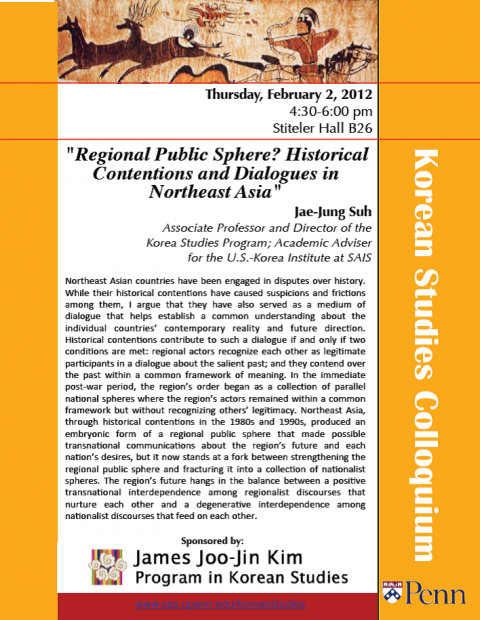
Korean Studies Colloquium
Stiteler Hall, Room B26
Jae-Jung Suh, Associate Professor of International Relations, Johns Hopkins University
Northeast Asian countries have been engaged in disputes over history. While their historical contentions have caused suspicions and frictions among them, I argue that they have also served as a medium of dialogue that helps establish a common understanding about the individual countries’ contemporary reality and future direction. Historical contentions contribute to such a dialogue if and only if two conditions are met: regional actors recognize each other as legitimate participants in a dialogue about the salient past; and they contend over the past within a common framework of meaning. In the immediate post-war period, the region’s order began as a collection of parallel national spheres where the region’s actors remained within a common framework but without recognizing others’ legitimacy. Northeast Asia, through historical contentions in the 1980s and 1990s, produced an embryonic form of a regional public sphere that made possible transnational communications about the region’s future and each nation’s desires, but it now stands at a fork between strengthening the regional public sphere and fracturing it into a collection of nationalist spheres. The region’s future hangs in the balance between a positive transnational interdependence among regionalist discourses that nurture each other and a degenerative interdependence among nationalist discourses that feed on each other.
 James Joo-Jin Kim Center for Korean Studies
James Joo-Jin Kim Center for Korean Studies